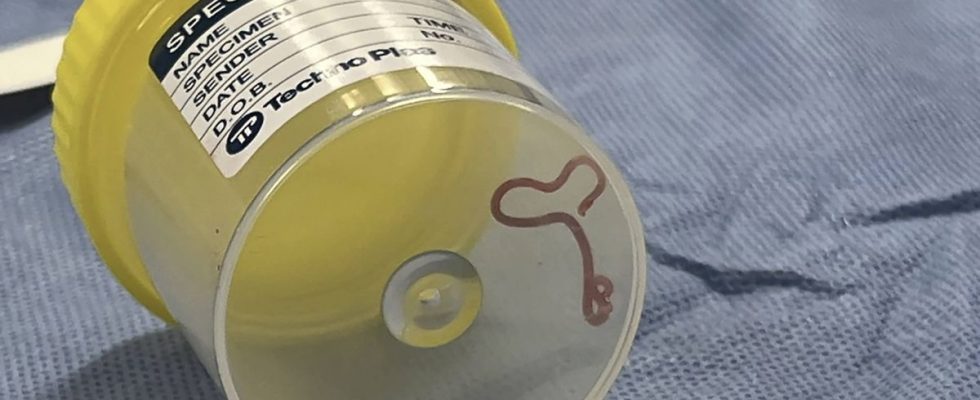A roundworm, which usually parasitizes snakes, has been discovered for the first time in a human being extracted “alive and wiggling” from the brain of an Australian woman during surgery, Australian doctors announced on Tuesday. They discovered an “atypical lesion”, thanks to an MRI, in the frontal part of the brain of the Australian, aged 64, who suffered from memory loss.
It was a Ophidascaris robertsi, an eight-centimeter roundworm that researchers say is a parasite of kangaroos and pythons, in Australia. It parasitizes animals in other regions of the world, but it had never before been detected in a human being. “This is the first ever human case ofOphidascaris described in the world,” said Dr. Sanjaya Senanayake, an infectious disease specialist. “To our knowledge, this is also the first case involving the brain of a mammalian species, human or otherwise,” he said.
Contamination via snake droppings
This discovery was the subject of an article in the journal Emerging Infectious Diseases. Scientists believe that the Australian was parasitized by edible plants, probably contaminated by larvae present in snake droppings. The parasite, whose “thread-like structure” showed up on brain scans, was later identified through DNA testing.
“It is never easy or desirable to be the first to be sick of anything in the world,” added Dr. Senanayake. I cannot express our admiration enough for this woman, who has shown patience and courage throughout this process. According to Dr Senanayake, it is “likely that more cases will be identified in the future”.

